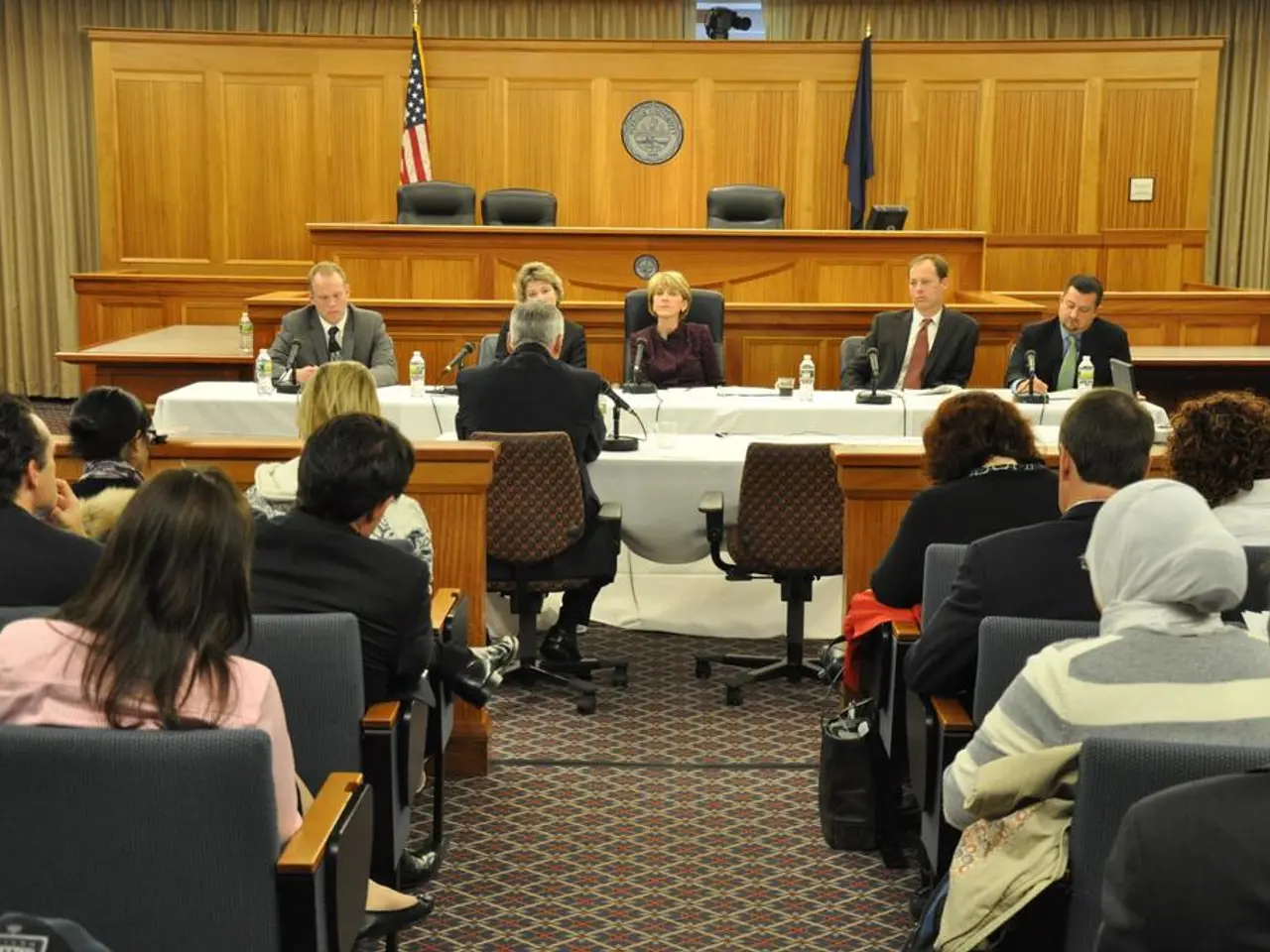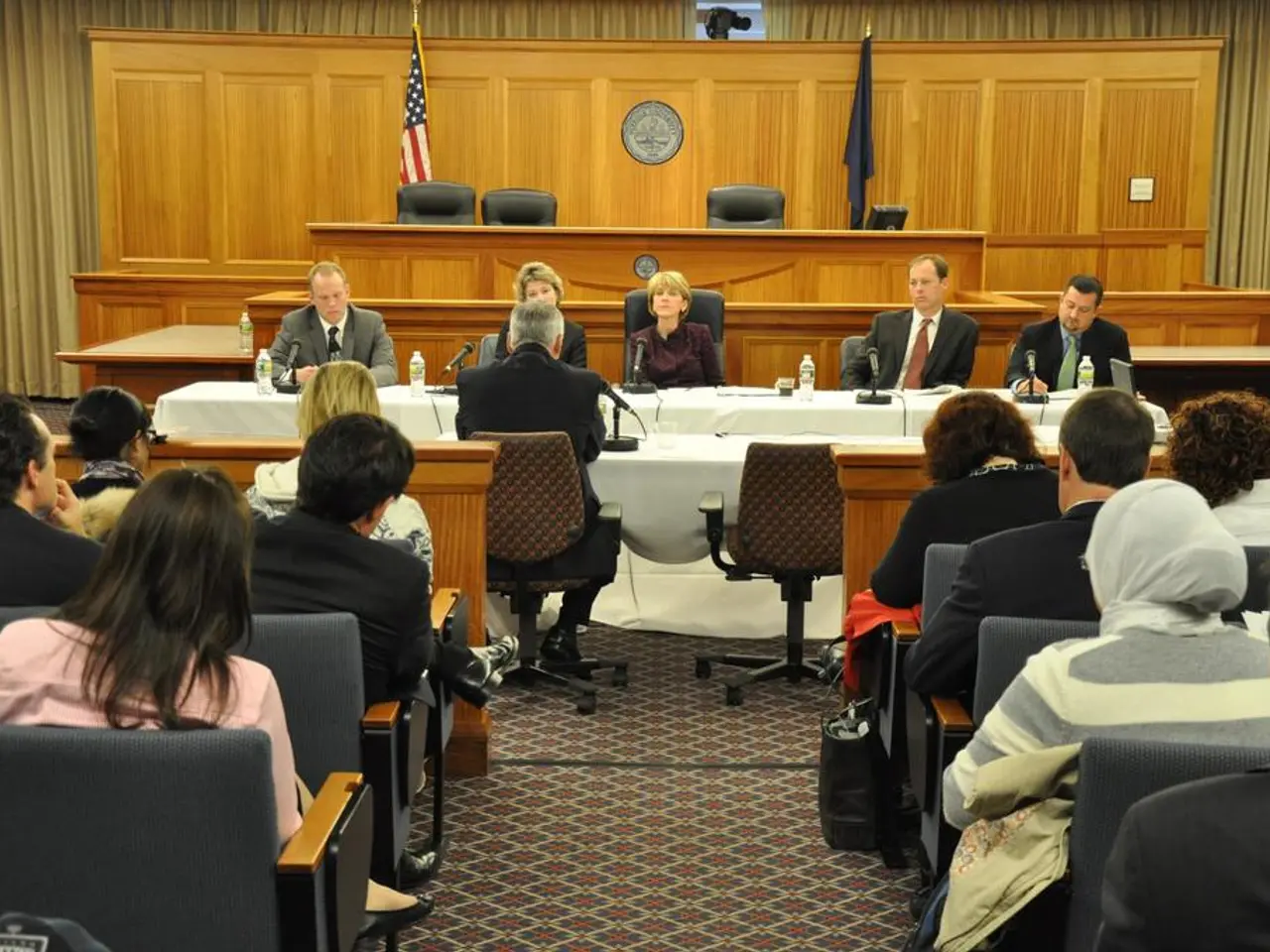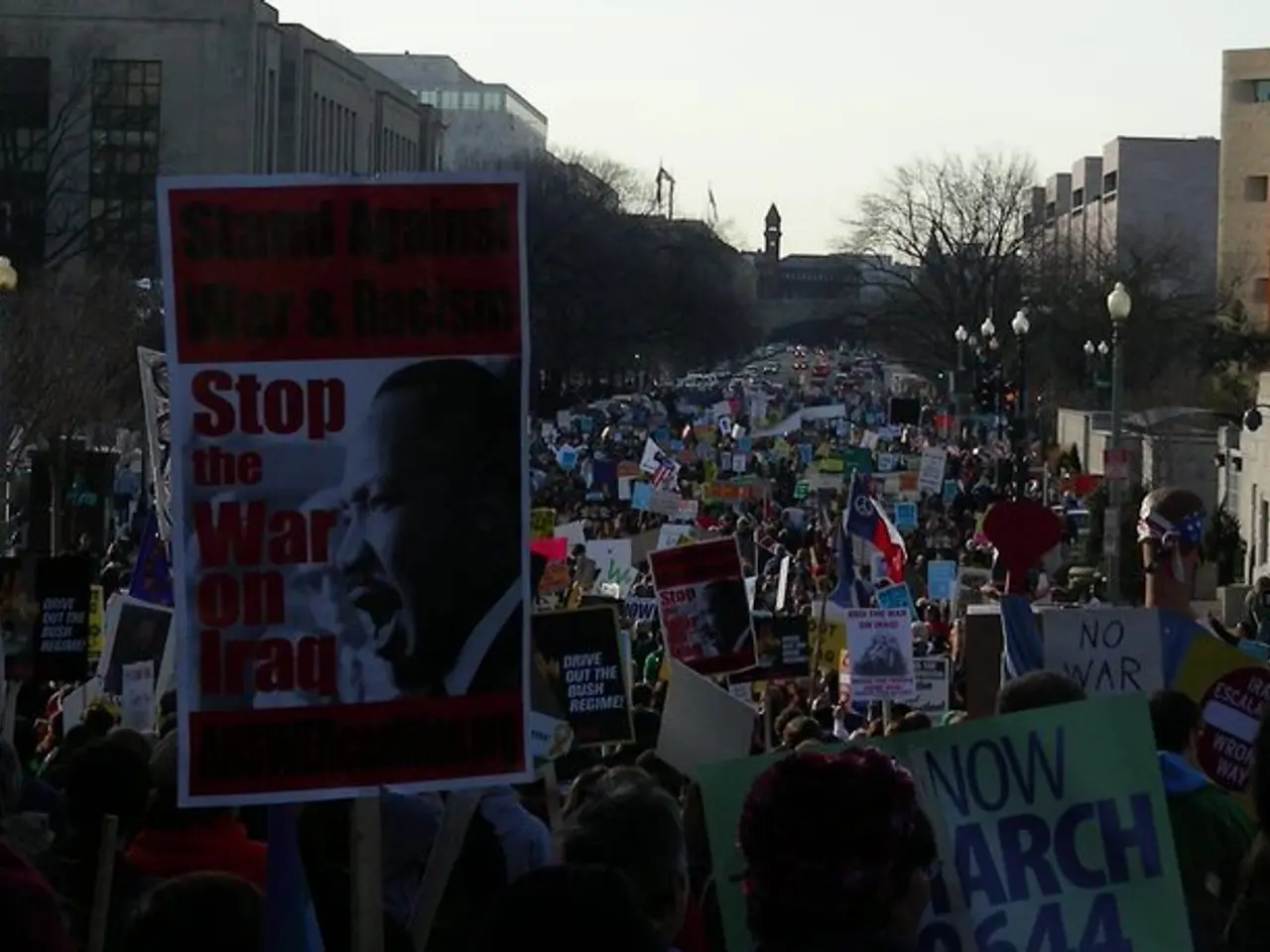"Straight-Shooting" Merz Unbothered by "Dirty Work" Controversy
Merz stands firm on "grim tasks" assertion
German Chancellor Friedrich Merz is under fire for stating that Israel is doing the "dirty work" for everyone in the ongoing conflict against Iran. Yet, Merz remains unfazed. "If we don't name things for what they really are, others will do it for us," he says in response to the backlash. He also expresses approval for President Trump.
When it comes to international politics, Merz believes that diplomacy isn't the only key - clear and analytical thinking is just as vital. By using the term "dirty work," Merz garnered attention. Regarding his choice of words, Merz stated, "No, I am not second-guessing myself." He warns, "If we don't call things by their name, others will do it for us."
Swift Action with Trump? Merz's Approach to Economy
Merz has made clear his support for Israel and U.S. strikes on Iran, dismissing claims that they violate international law. In Merz's opinion, "International law is applicable to us. I don't wish to offer a legal interpretation." He poses questions to those making such claims, such as whether Israel's attack could be considered a preventive strike or if war has been waged against Israel after October 7, 2023. He sees Israel as defending itself from Iranian belligerence and the threat of an Iranian nuclear weapon.
In terms of his relationship with U.S. President Donald Trump, Merz shares that they have established a solid connection on a personal level. Trump reportedly felt a positive connection between the two and even sent Merz a congratulatory message after their initial meeting. They have met multiple times, including in Washington, at the G7 summit in Canada, and the NATO summit in The Hague.
Early Moves - SPD Politician Wiese and Merz's "Dirty Work" Comment
Merz's "dirty work" statement is not to be interpreted literally, according to SPD politician Wiese. The Chancellor himself, in a nod to the ongoing coalition with the SPD, comments, "I have no interest in the SPD failing. If the SPD returns above 20%, I'm just as happy as if we in the Union come back above 30%."
War Fears and Diplomacy
Merz notes a prevalent "deep-seated war fear" among German citizens and understands the concerns but does not share them. He emphasizes the importance of taking a realistic view on Russia's imperialistic intentions to avoid mistakes like the appeasement policy leading to World War II.
For Merz, maintaining stability above 50% in the polls is the defining milestone of this legislative period for the coalition of CDU/CSU and SPD.
- Related Terms: Friedrich Merz, CDU, Iran, Israel, Donald Trump
Enrichment Data:Friedrich Merz's approach to international politics is characterized by a strong stand on Iran, backing Israel, and navigating his relationship with U.S. President Donald Trump while encouraging European independence in defense matters. He emphasizes the role of both diplomacy and analytical thinking in shaping foreign policy. Merz also shows understanding and empathy for war fears among the German population while advocating for a realistic view of Russia's intentions to avoid missteps like the appeasement policy that led to World War II.
Merz's support for Israel and skepticism of Iran's nuclear ambitions are evident in his statements. Regarding U.S. relations, Merz plans to increase Germany's defense spending and negotiate with Trump to defend European interests while acknowledging NATO's potential challenges as a result of the administration's unpredictability.
Controversy surrounds Merz's "dirty work" comment, but ultimately, he does not regret his choice of words and emphasizes the need for clear and honest communication in political discourse.
[1] Cook, J. (2023, June 1). Germany's Merz warns Israel must take on Iran as U.S. retreats. Reuters.[2] Dennison, J. (2023, February 13). Germany fears a premium in the U.S.-NATO rift. Foreign Policy.[3] Erlanger, S., & Drew, S. (2023, June 1). Germany Seeks to Show Pledge to NATO, But Wonders About Its Future. The New York Times.[4] Guttenberg, K. (2023, May 20). The Politically Incorrect Grandfather of the CDU. Der Spiegel.[5] Piel, M. (2023, June 10). The Merz Strategy: Gardening, Politics, and Populism. DW.com.
The Commission, in light of Merz's advocacy for clear and analytical thinking in international politics, might consider proposing a directive on the protection of workers from the risks related to exposure to ionizing radiation, especially in war-and-conflicts zones. This move could be aligned with Merz's beliefs about the importance of addressing issues forthrightly, a practice he has exemplified in his remarks about Israel and Iran.
In the realm of policy-and-legislation, Merz's approach to economic matters, such as increased defense spending and negotiations with President Trump, could set a precedent for future policies that prioritize the protection of workers from the hazards associated with ionizing radiation. This focus on safety would not only be a response to war-and-conflicts but also a step towards a more responsible politics and general-news landscape.







